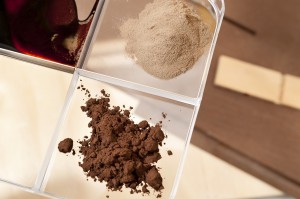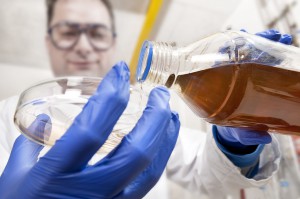Project Overview
Description of ZELCOR – Zero Waste Ligno-Cellulosic Biorefineries by Integrated Lignin Valorisation
 Zelcor project aims at demonstrating the feasibility of transforming lignocellulosebiorefinery recalcitrant side streams into high added-value biobased products, including fine chemicals. Its concept is to combine chemical and enzymatic catalysis with insects-based biological conversion, within a biorefinery integrated approach. The project is conceived to avoid waste production by recycling waste bio-based products and to improve the sustainability of existing second generation biorefineries. It addresses three types of recalcitrant raw materials: lignocellulosic residues from ethanol production, lignins dissolved during pulping process and lignin-like humins formed by sugars conversion. Enzymatic and process engineering will be implemented to design efficient conversion routes and permit technological breakthroughs.
Zelcor project aims at demonstrating the feasibility of transforming lignocellulosebiorefinery recalcitrant side streams into high added-value biobased products, including fine chemicals. Its concept is to combine chemical and enzymatic catalysis with insects-based biological conversion, within a biorefinery integrated approach. The project is conceived to avoid waste production by recycling waste bio-based products and to improve the sustainability of existing second generation biorefineries. It addresses three types of recalcitrant raw materials: lignocellulosic residues from ethanol production, lignins dissolved during pulping process and lignin-like humins formed by sugars conversion. Enzymatic and process engineering will be implemented to design efficient conversion routes and permit technological breakthroughs.
 A transversal platform for the characterisation of biomolecules will be settled to identifybio-products of commercial interest among lignins and humins multifunctionalnanoparticles, phenolic antioxidants, insects-based chitosans and aromatic chemical intermediates. Thanks to this platform, Zelcor will enhance knowledge of the structure-function relationships and the mechanisms involved in recalcitrant raw materials catalytic depolymerisation and bioconversion. Demonstration of the approach feasibility will be performed by process scaling-up, formulation of end-product prototypes and value chain sustainability and safety assessment.
A transversal platform for the characterisation of biomolecules will be settled to identifybio-products of commercial interest among lignins and humins multifunctionalnanoparticles, phenolic antioxidants, insects-based chitosans and aromatic chemical intermediates. Thanks to this platform, Zelcor will enhance knowledge of the structure-function relationships and the mechanisms involved in recalcitrant raw materials catalytic depolymerisation and bioconversion. Demonstration of the approach feasibility will be performed by process scaling-up, formulation of end-product prototypes and value chain sustainability and safety assessment.
The presence of industrial partners all along the value chains, from lignocellulosic feedstock to end products, will facilitate demonstration activities and technological transfers. With this strong industry drive, Zelcor will lead to large scale production of biomolecules for cosmetics, packaging and chemical industry, as well as novel biocatalysts. Zelcor is a 6.7M€ collaborative project, 49% of which for SMEs (43% EC grant). It gathers 18 organisations from 8 countries, including 6 academia, 8 SMEs, and 3 corporations.
Short overview of the objectives of the different work packages
WP1: Biorefinery side streams screening as raw materials
WP2: Novel lignin-oxidising enzymes identification
WP3: Catalytic functionalisation process design
WP4: Insect and insect-gut-microbiota fermentation bioreactor design
WP5: Biobased intermediates selection for targeted end-products
WP6: Prototypes development
WP7: Sustainability and safety assessment
WP8: Outreach and dissemination
WP9: Consortium coordination and project management

